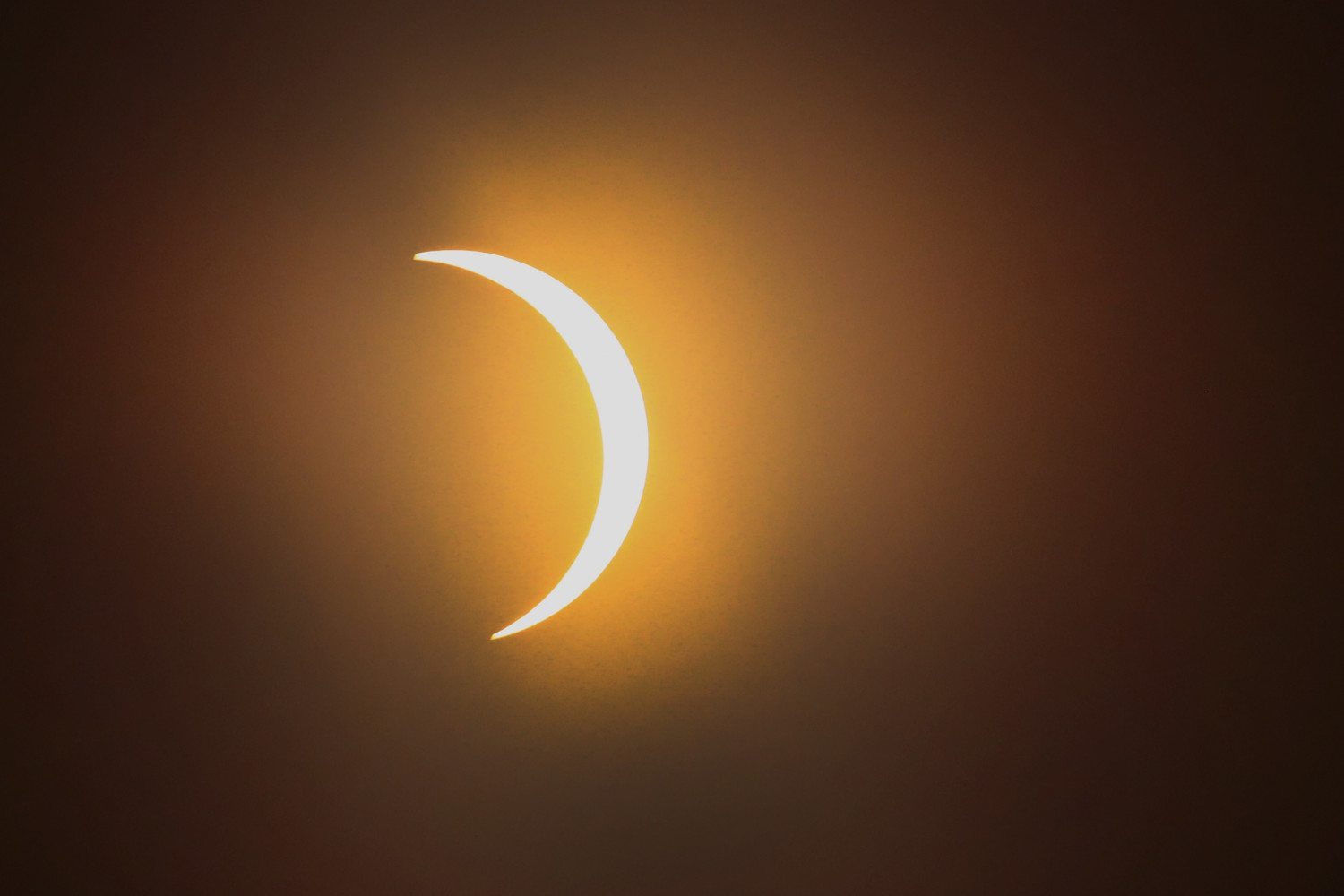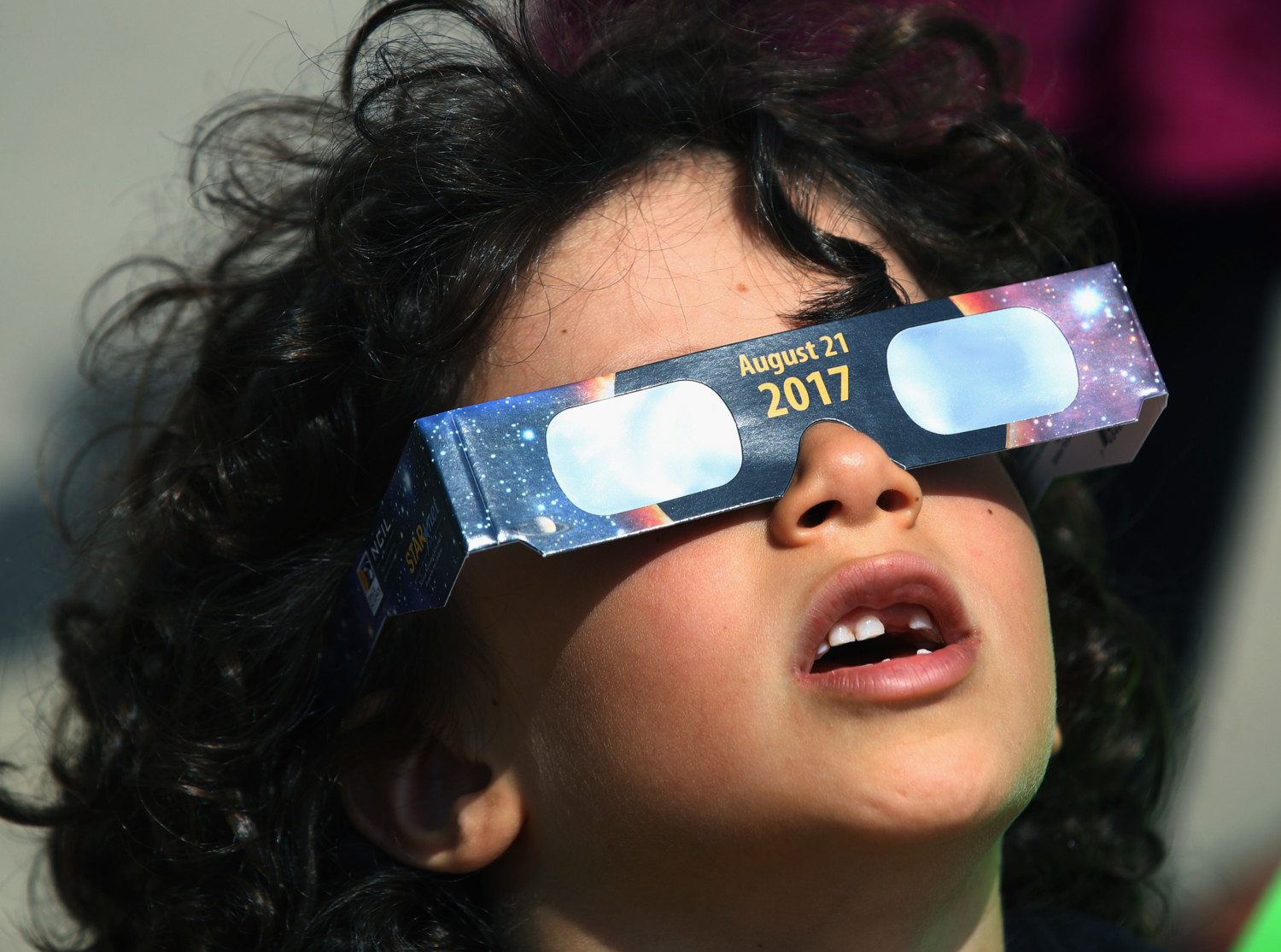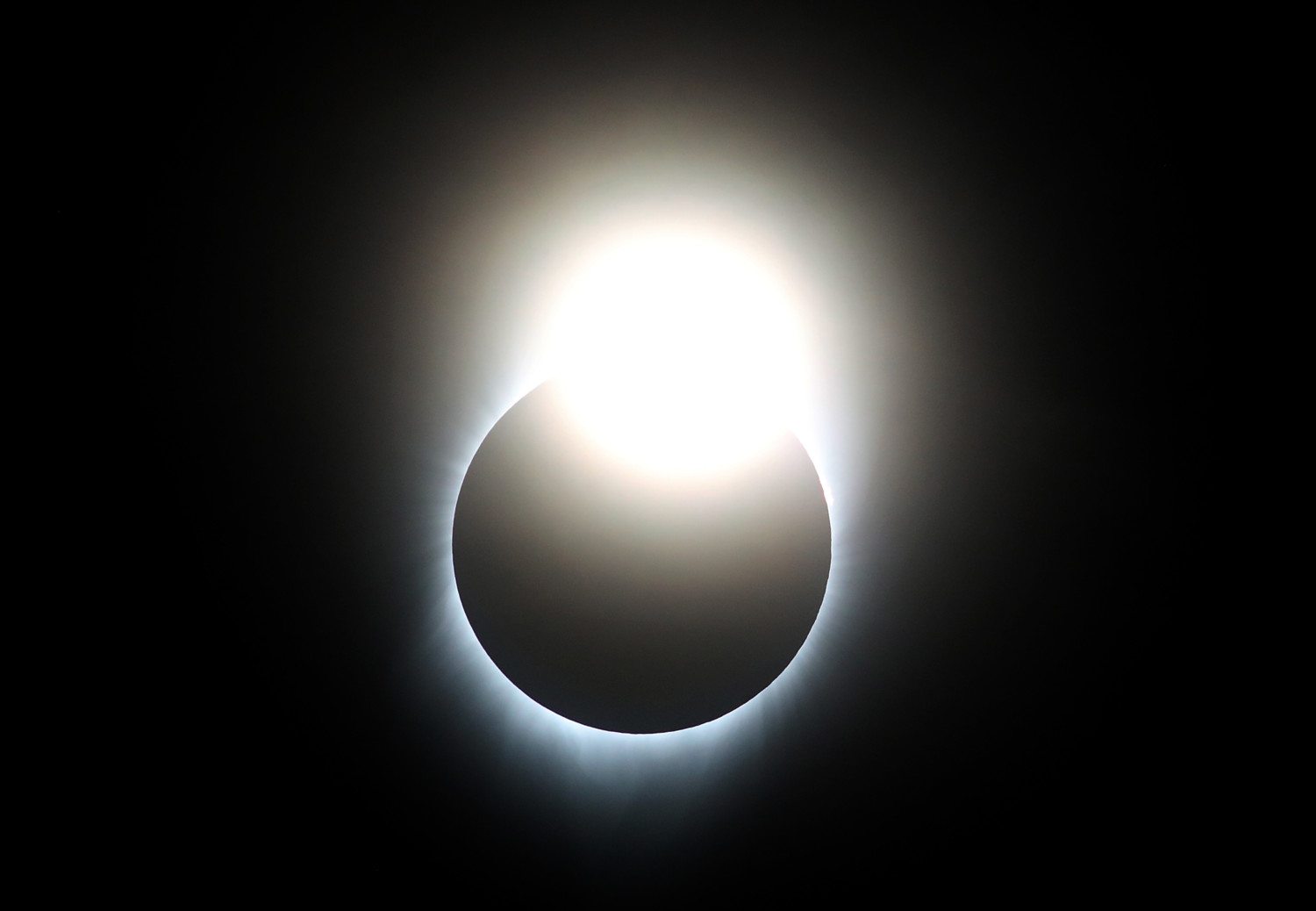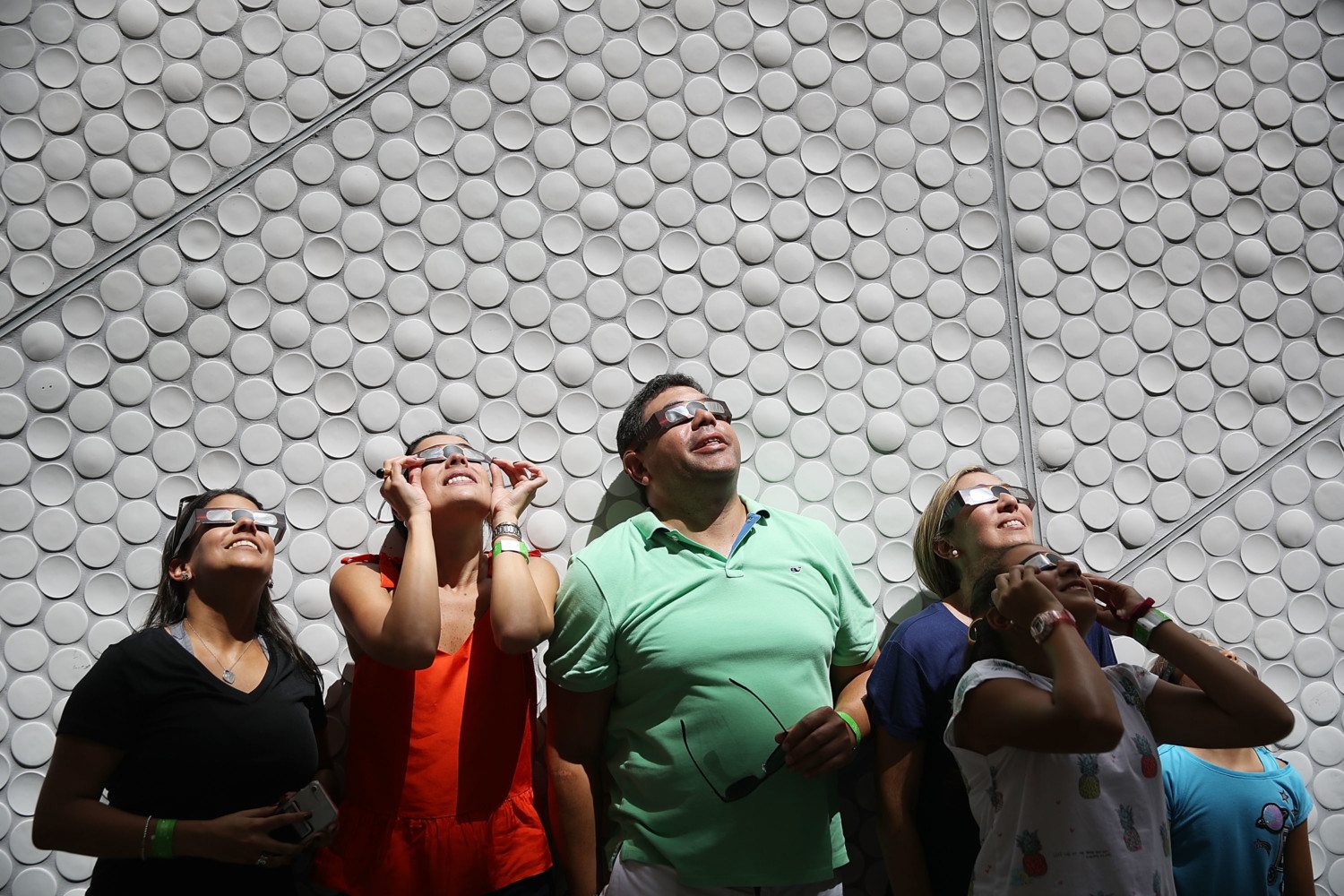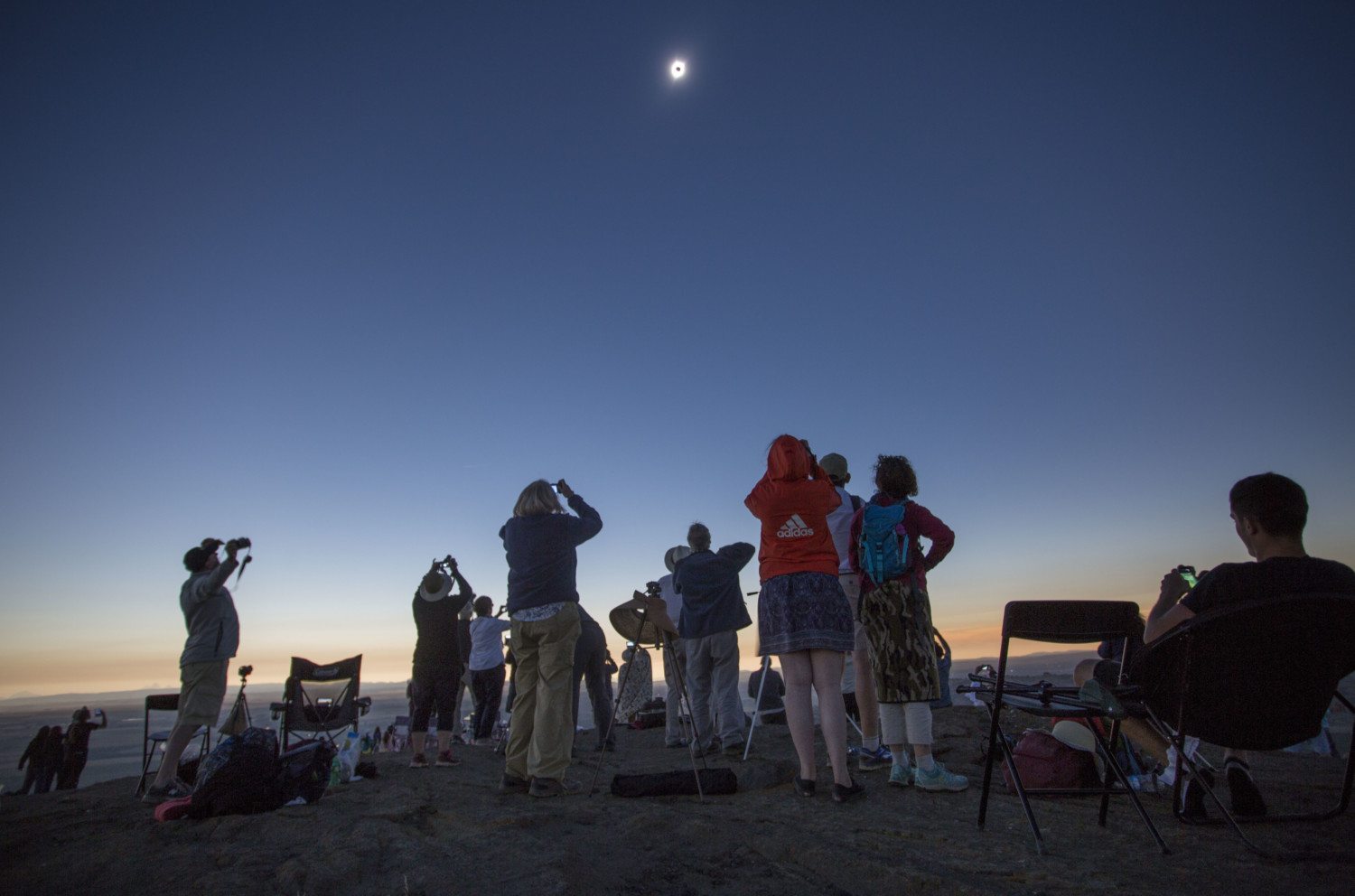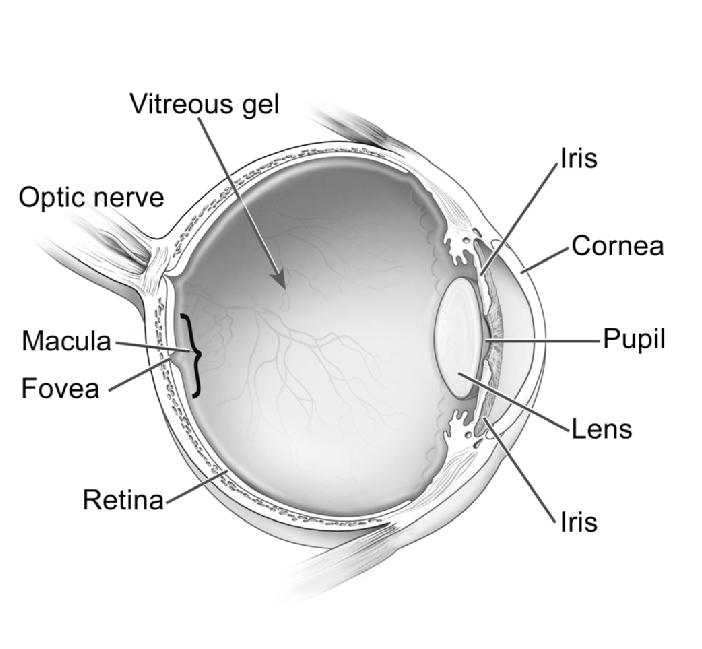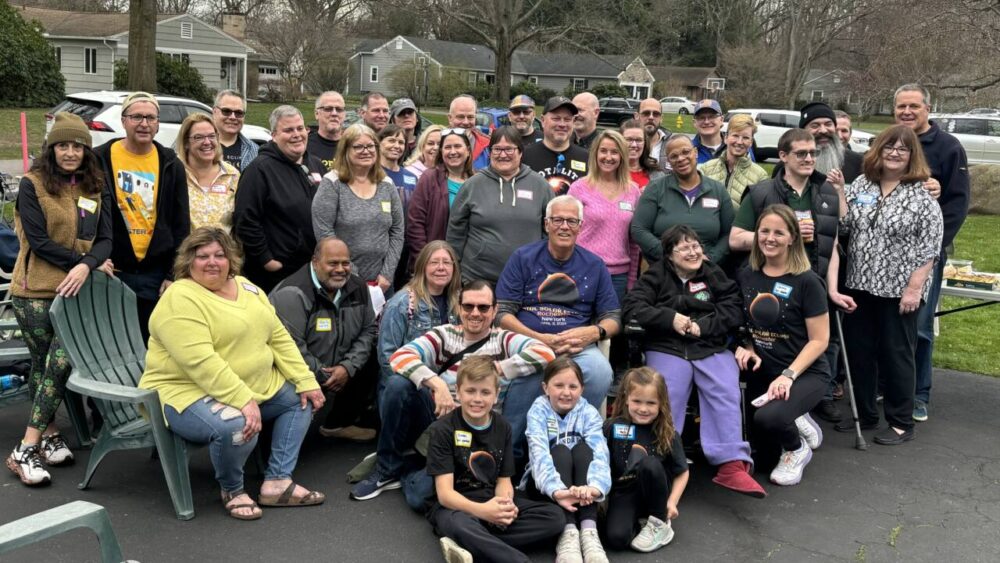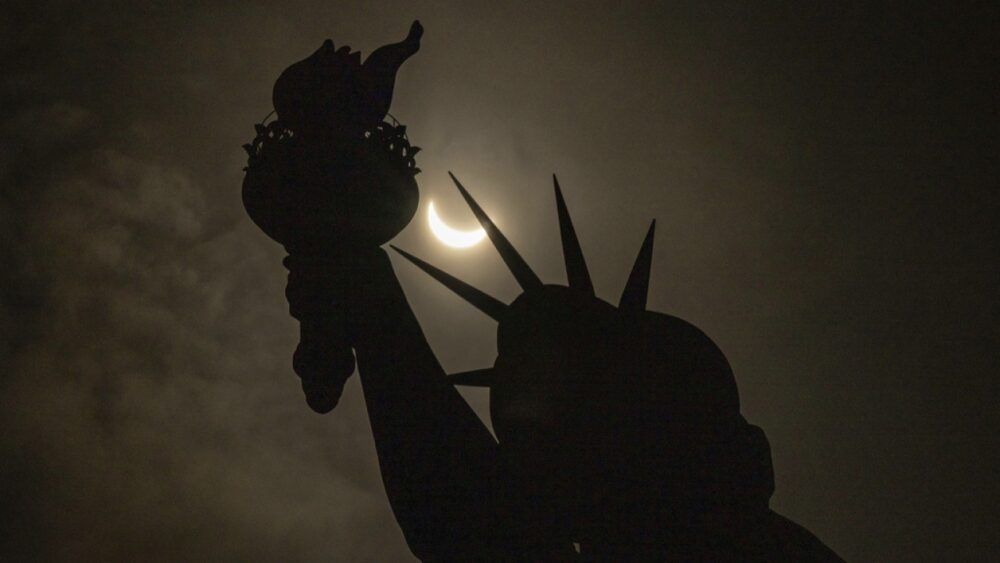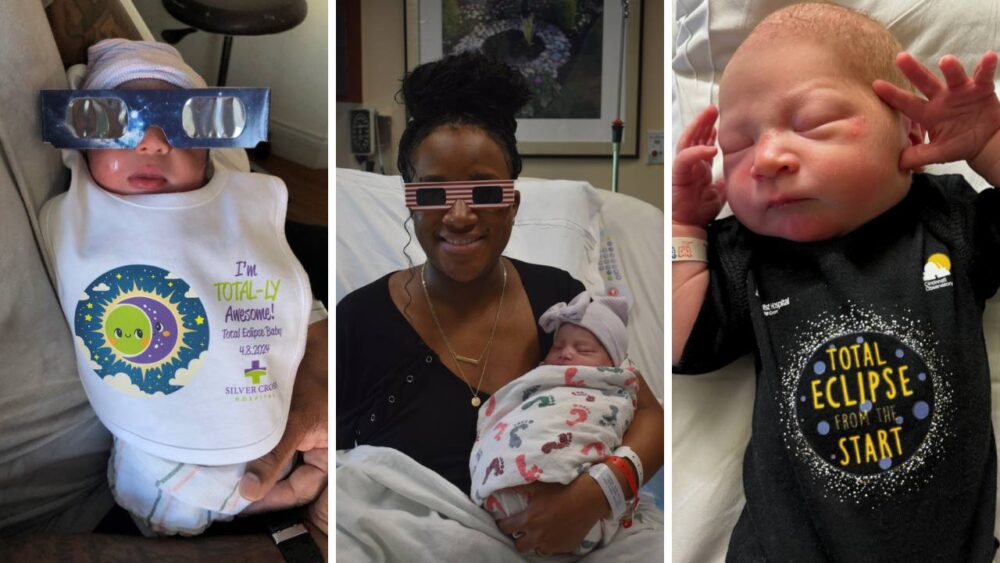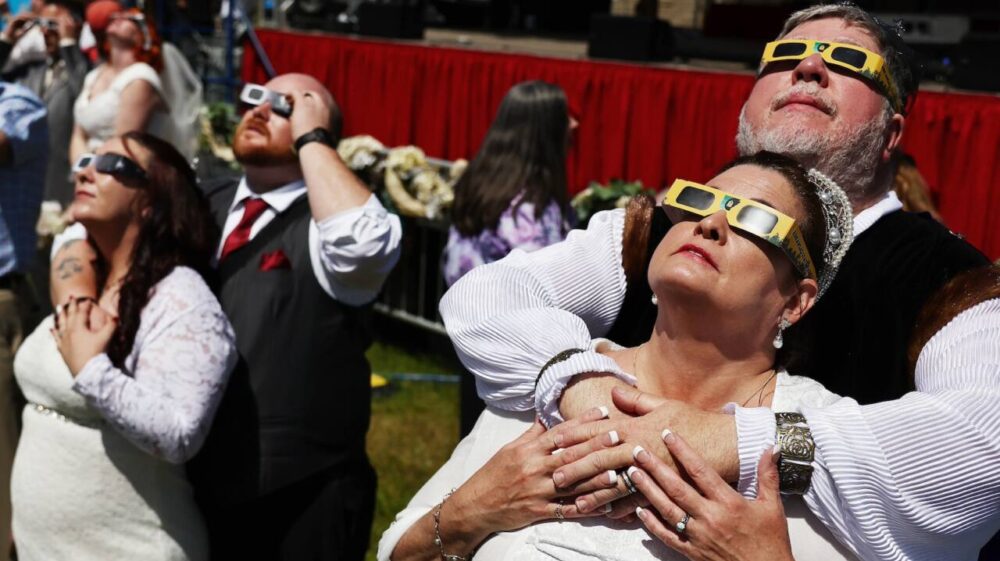I have a headache after looking at the solar eclipse—should I be worried?
Millions of people all over the United States were dazzled by yesterday’s solar eclipse.
And it was a truly amazing sight, whether you viewed it in the “path of totality” (across parts of Oregon, Idaho, Wyoming, Nebraska, Missouri, Kentucky, Tennessee and South Carolina) or from your own backyard elsewhere in the U.S.
NASA issued clear guidelines about how Americans could view the eclipse safely—namely, viewing through eclipse glasses or pinhole devices—but that doesn’t mean everyone did.
Plenty of Americans today are worried about the after-effects of eclipse viewing. Google searches for “eyes hurt” and “solar eclipse headache” have spiked in the hours since the event.
And no, everyone isn’t being a total hypochondriac—there IS some evidence that looking at the eclipse could cause a headache.
Flickering Can Cause Headaches
According to Bustle, the rapid change of light conditions, like those experienced while viewing the solar eclipse, can induce something called “flickering,” which can actually cause headaches from eye strain. In extreme cases, people have suffered from seizures after flickering.
Flickering is most often noticed when going from darker environments to very light ones—so you may have experienced some head pain in the past after leaving a dark building and heading out onto the beach, for example. Sunlight is a known migraine trigger, as well. So chances are, any pain you felt was a very mild version of flickering.
Most likely, if your head felt achy post-eclipse, the feeling has now passed. As for me, I had no special plans for eclipse viewing, which meant I also didn’t have any eclipse glasses. So I simply stepped out into my backyard and squinted up at the sun for a few minutes. I wasn’t able to see much, but when I came inside, I did notice my head was achy for about an hour or so, with my vision a little wonky. I closed my eyes and napped for 10 minutes, and all was well.
If you continue to have symptoms of pain or blurred or spotty vision for a few days, it’s worth a visit to your doctor.
But don’t worry too much about permanent eye damage. Although damage likely wouldn’t show up until today or later, Ralph Chou, a professor of optometry at the University of Waterloo, told TIME that permanent vision loss is relatively rare.
How To Know If The Eclipse Damaged Your Eyes
First, answer this question: “How long did you look up at the eclipse without eye protection?”
If you just snuck a quick peek at the sun for a second or two, you’re fine, Jacob Chung, chief of ophthalmology at New Jersey’s Englewood Hospital, told USA Today. “Five seconds, I’m not sure, but 10 seconds is probably too long, and 20 seconds is definitely too long.”
Your eyes won’t feel any pain if they suffer serious damage to the retina, according to Chung. That’s because retinas don’t have pain fibers. But because retinas can’t heal themselves, it’s possible staring at the sun too long could have caused permanent damage.
A man who suffered vision loss after staring at the sun during an eclipse in 1962, said he felt like he was getting his picture taken with a bright flash while he was watching the eclipse. He now has a blind spot about the size of a pea in one of his eyes.
RELATED: The Best Photos Of The Solar Eclipse
If you’re concerned that you are suffering vision problems or are experiencing an ongoing headache after the eclipse, it’s of course best to step away from Google and go visit your doctor for an exam!


